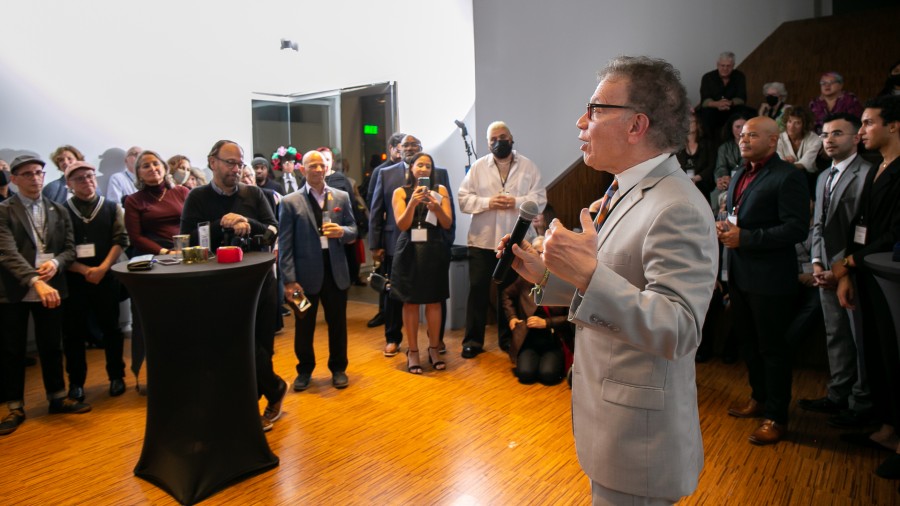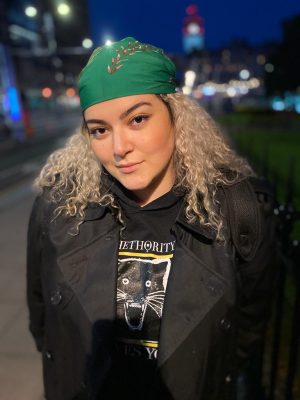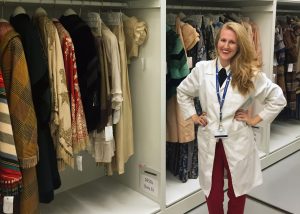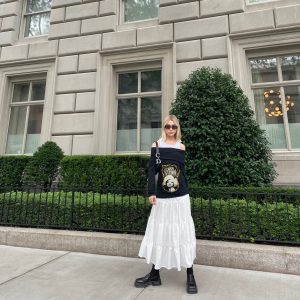Bill Aguado’s Legacy: A Leader of Supporting and Empowering Artists
Through the preservation of the arts, Bill Aguado dedicated his life’s work to showcasing the histories of hidden communities and their cultures
COURTESY OF ADI TALWAR
Bill Aguado (GSAS ‘73), was honored with the Bronx Council on the Arts Lifetime Achievement Award for his decades of contributions to the Bronx community.
February 9, 2023
Bill Aguado, Graduate School of Arts and Sciences (GSAS) ’73, is a Bronx legend who has been a champion for the arts in many communities around the city. On Oct. 19, 2022, he was honored with the Bronx Council on the Arts (BCA) lifetime achievement award.
After graduating from Hunter College, Aguado received a scholarship to GSAS to complete his master’s degree in teaching and sociology. With the help and leadership of the directors of the program, Aguado and his peers committed their studies to creating an alternative school in the South Bronx. The school worked with middle school – to high school-aged students who were or had been involved in the juvenile justice system, in need of supervision or involved in gang violence or drugs. The school aimed to provide a nontraditional classroom environment that fosters students’ creative interests and talents.
“We wanted the program to be in the community,” Aguado said.
More importantly, the school offered these students an education away from the traditional classroom — one that allowed them to use their hands, get out from behind their desks and be creative. While they dedicated an hour to reading and an hour to math every day, the students also learned to farm with the help of a Puerto Rican farmer who volunteered at the school, as well as to write poetry under the guidance of another volunteer. Due to the overwhelming success of the school, four more were created with support from Fordham.
“I was impressed, and so I wanted to continue to empower and affirm the voices and values of the community.”Bill Aguado, GSAS ’73
“The kids were so involved and engaged,” Aguado said.
Teaching at the alternative school was a catalyst for Aguado’s lifetime dedication to the arts and his community, facilitating the conditions by which he “realized the value and importance of the arts.” After completing his master’s degree, Aguado worked alongside a Fordham professor, the Rev. Joseph Fitzpatrick, S.J., on a field study in the South Bronx.
Aguado searched for art and artists within the community. He confronted rich cultures, histories and stories that transformed his passion for the arts. According to Aguado, sitting on stoops and talking with residents of the South Bronx and Harlem “was an extraordinary experience.” He heard music, admired the graffiti, and swayed to the rhythm and culture of the spoken word of those in these admirable communities.
Aguado touched on the history of the “Bronx is Burning” period, where Black and Puerto Rican residents in the Bronx during the ’70s battled daily to save their neighborhoods from racist policies and neglect that ravaged homes and uprooted families. He explained the admiration he had for the people there because “when they could have given up, … they stayed and they fought.”
During these encounters, Aguado’s respect for the people only grew as he learned more about the community. Inspired and impacted by the art, culture and history of these communities, Aguado said, “I was impressed, and so I wanted to continue to empower and affirm the voices and values of the community.”
“The soul of the people is the community,” he said. “The soul of the people is the community.”
Aguado retired in May 2009 after almost 30 years as the director of the BCA, where he promoted and supported local artists and advocated for the culture of the Bronx neighborhoods. Even so, Aguado continues to donate his time to En Foco, a nonprofit that supports U.S.-based photographers of African, Asian, Latino, Native American and Pacific Islander heritage.
Over the past seven years, Aguado has focused on sorting and digitizing an inventory of over 350 artists’ works in hopes of preserving and presenting a parallel cultural history of hidden stories and moments of minority communities in New York City. This project is called Nueva Luz, an ongoing art publication that addresses social and cultural issues at the forefront of photography with an emphasis on narratives from artists of color. Aguado said he hopes to continue preserving and showcasing important history so that it is not lost as “This is what matters to me,” he said.
Aguado’s lifetime achievement award is a testament to his dedication and passion for the arts and the needs of the community. Although, when asked about how he felt receiving this honor late last year, he replied, “I don’t particularly like awards.” Instead, he redirected the conversation to the colleagues and artists who attended the awards ceremony and highlighted their work in “the front lines of the cultural battle.”
In spite of this recognition, Aguado confessed that he is not an artist. Aguado, who is colorblind and deaf, joked that when asked his favorite color, he “will always say black.” Nevertheless, he has dedicated his passion and talents to the preservation of the arts throughout New York City for decades.
Aguado wants to continue looking forward: “Let me go find another group of artists and tell them it’s your vision that matters. There is no right way. There is just your way.”















